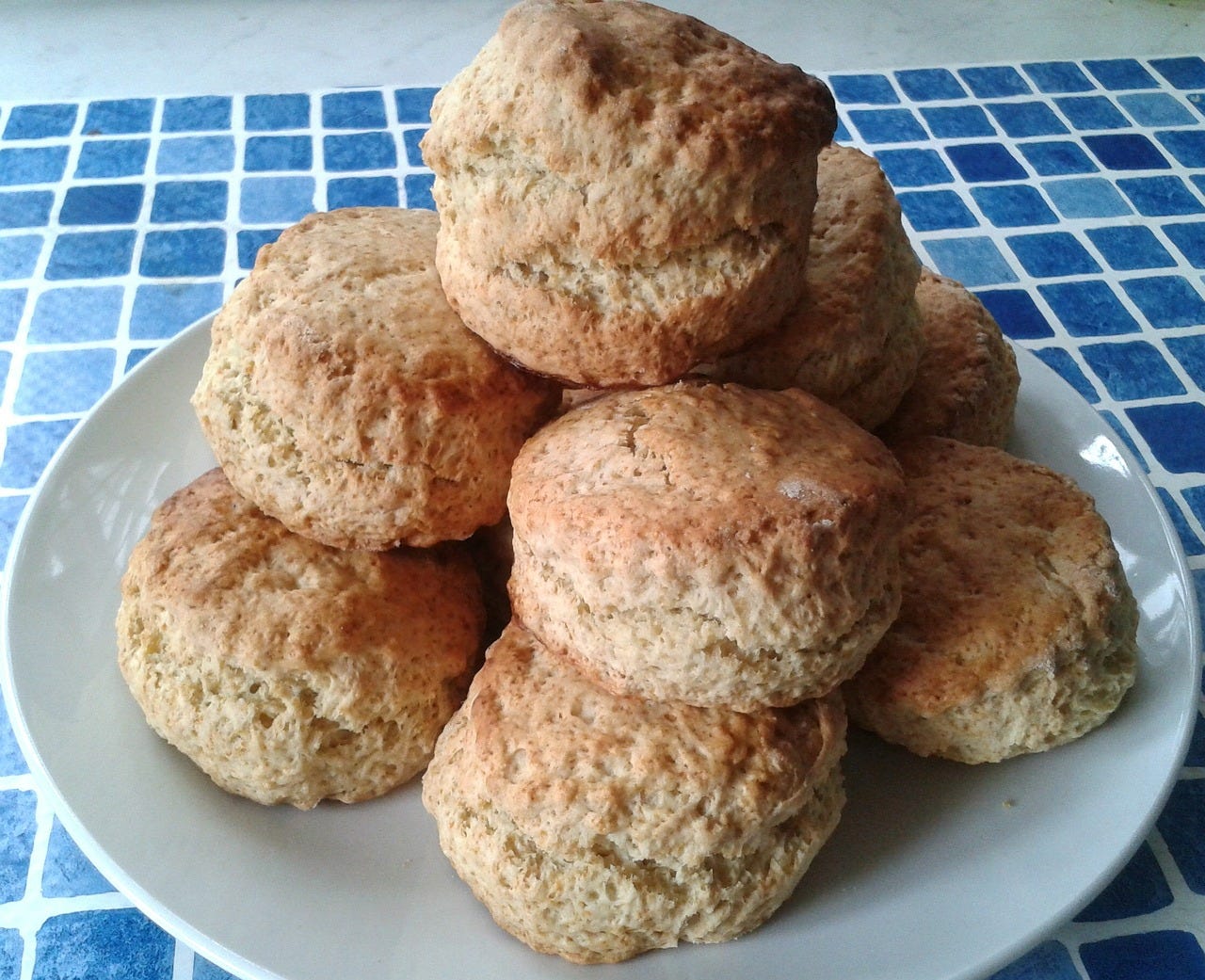I love scones, or is it scones?
My favourite recipe uses half butter and half lard. I find shop bought scones are too cloggy and have to be accompanied by a cup of tea. But then the all-butter scones are far too rich for me. The lard balances out the taste of the butter and appears to make the scone fluffier and the crust crispier.
Scones are an important part of English Cultural Heritage. After all, it is the background to the most controversial questions in England. Scone or scone?
Which is the correct pronunciation, scone which rhymes with gone or scone which rhymes with bone.
I don’t remember when I first heard this question, but it seems it must have been when I was very young. I feel like I’ve always been aware of this question.
This difference in pronunciation was first mentioned in a poem published in the early 1900s, but I think it was likely in the cultural milieu before this.
A strange observation to add, is that there isn’t a firm divide in the country. You would think it will be a North/South divide or an East/West one, but it’s not. If you travel only a few miles, you may find variations with the pronunciation. Even between villages.
So this leads me to think it is not the answer which is important, but the question. If the other person understands the cultural significance of the question, then the questioner knows that the other person is English. It’s like a secret test, that only someone in the ‘English club’ will know anything about.
Having this identifier might seem a little unwelcoming, but I think this cultural oddity has a deeper meaning.
The English, by nature, are generally non-confrontational. By having this question, we don’t have to ask the unpleasant one, ‘Are you English?’ Which is rather rude to someone who might have a different accent to you, but who shares in English Cultural Heritage.
Though, I think the Scone question goes deeper still. The underlying meaning of this question implies, “Isn’t it funny how we say scone differently. And it doesn’t matter, because we are both English.”
It’s a very English way of including others by opening up a conversation without overstepping local cultural boundaries and possibly causing offence.
It’s like talking about the weather. It doesn’t matter what the weather is doing, it’s just about opening up a conversation which connects people together over a common topic.
So next time you find yourself discussing scones, don’t forget to take it to the next level and ask, “Which is first, cream or jam?”
(BTW - Scone is pronounced like bone, due to the presence of the magic ‘e’ 😜)
Alexander writes three newsletters. The Tales of Old England Christendom is where he writes about Anglo-Saxon Christianity. The second newsletter is called the Tower of Adam and here he writes about theology. The final one is called Agloria, where he discusses the intersection between culture and theology. You can find out more by clinking the links.
If you enjoyed this article, please consider subscribing to receive more articles like this one.
If you have a comment, please click this link to the comments form. It might appear in the Letter’s Page, which will be published next week.
Finally, we would encourage you to share this with your friends and family. They might like these stories too.






